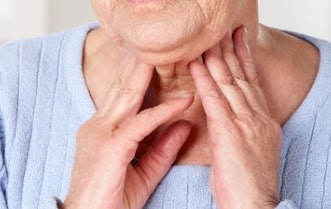
However, earlier this year, a patient safety alert was issued by NHS England to raise awareness of the need for proper storage and management of thickening powder used as part of the treatment of people with dysphagia (swallowing problems). This was in response to an incident where a care home resident died following the accidental ingestion of thickening powder.
Dysphagia (swallowing problems) occurs in all care settings and although the true incidence and prevalence are unknown, it is estimated the condition can occur in up to 30 per cent of people over 65 years of age. Stroke, neurodegenerative diseases and learning disabilities can be the cause of some cases of dysphagia, and may also result in cognitive or intellectual impairment, as well as visual impairment.
The modification of liquid thickness and food texture is common practice in dysphagia management to avoid aspiration of material into the airway whilst maintaining adequate hydration and nutrition. Thickening agents are available in a range of preparations; the most common being a powdered form, supplied in tubs and commonly kept in a place that is accessible such as at the bedside.
Risk of death from asphyxiation by accidental ingestion of fluid/food thickening powder
In February 2015, NHS England received details of an incident where a care home resident died following the accidental ingestion of the thickening powder that had been left within their reach. It appears that the powder may have formed a solid mass and caused fatal airway obstruction. Analysis of the National Reporting and Learning System further identified one other similar incident that occurred in hospital: The note recorded in the System was as follows
‘HCA (Healthcare Assistant) alerted by another patient that the patient was choking. Found to have taken the lid off a tub of thickening powder and attempted to tip it back to ‘drink’. The patient is partially sighted and his condition fluctuates re conscious / alert levels. Thickener was a fresh tub today as trial re his poor swallow……’
Feedback from frontline staff indicates that the potential consequences of trying to swallow dry thickening powder appear under-recognised, therefore there may be significant under reporting.
All care home staff should be aware of this potential safety issue.
Whilst it is important that products remain accessible, all relevant staff need to be aware of the potential risks to patient safety. Appropriate storage and administration of thickening powder needs to be embedded within the wider context of protocols, bedside documentation and training programmes and access to expert advice is required to safely manage all aspects of the care of individuals with dysphagia. Individualised risk assessment and care planning is required to ensure that vulnerable people are identified and protected.



